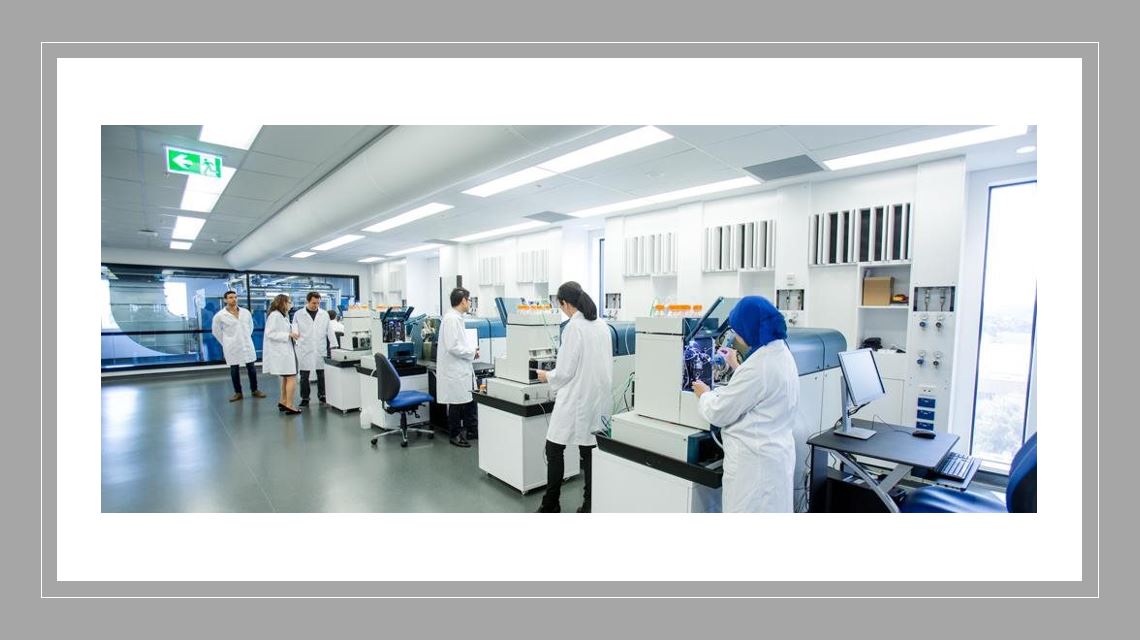Medical
World-first technology in cancer analysis

Medical News: A Sydney-based cancer research group has achieved a world-first by developing a technology that can reliably analyse the proteins in cancer samples on a scale never attempted before – with results published online in the prestigious scientific journal Nature Communications.
ProCan is a cancer research facility at Children’s Medical Research Institute (CMRI) in Westmead. Its goal is to build the world’s biggest public library of cancer proteomics information, which can then be used to help find the most effective treatment for each individual patient and mined by researchers to find targets for development of new precision medicine cancer treatments.
The Nature Communications publication demonstrates that ProCan’s large-scale ‘big data’ methodology for understanding the unique properties of each individual cancer is successful and reliable.
Professor Roger Reddel, a cancer researcher who is the CMRI Director said “One of the reasons that cancer can be difficult to treat is that no two cancers are exactly the same in their molecular composition. The molecules that ultimately determine the behaviour of cancers are predominantly the thousands of different types of proteins that are responsible for most of the processes that make life possible. Each individual’s cancer contains its own unique quantities of various proteins.”
The total of the proteins in a normal tissue or in a cancer is referred to as its proteome, and ProCan’s full name is the Australian Cancer Research Foundation International Centre for the Proteome of Human Cancer. This ambitious research program aims to analyse thousands of different types of proteins in tens of thousands of cancer samples from across the world – a cancer proteomic research program on a scale never attempted before. To make this possible, ProCan’s research team needed to develop the computational strategies required to obtain reliable proteomic data from a set of six scientific instruments (mass spectrometers) operating continuously over long periods of time.
The new publication provides details of these new methods and the analyses that have been done to thoroughly test their reliability. The ProCan team needed to develop methods that would allow, for example, results collected from instrument #1 at the start of the program to be comparable to results from instrument #6 many months later.
Dr Qing Zhong, the senior author of the publication explained “We developed new methods to correct for the variation that inevitably arises in instruments of this kind over the time scale of such a large study. We now have a way of designing our research cohorts so that they can be successfully integrated, regardless of whether they have been collected at different times over the life of the ProCan project.”
Professor Reddel said that this world-first achievement was the result of a huge team effort.
“ProCan’s proteomics team have done an outstanding job in working out how to keep these rather temperamental instruments operating in top condition over long time periods. Our software engineers have written the code that allows unprecedented amounts of proteomic data to be processed, and our cancer data scientists have devised new computational methods for ensuring that data can be compared and analysed successfully regardless of where the mass spectrometers are in their service cycle.”
The ProCan team are on their way to delivering on the promise of this unique cancer research program. Dr Rebecca Poulos, one of the co-lead authors explained why analysing proteins is a vital step toward developing precision medicine treatments.
“ProCan’s research will allow us to find protein signatures that can predict either patient outcome or drug response in cancer.”
Prof Reddel said that in addition to helping find new cancer treatments, which are urgently needed, ProCan’s research is designed to help match patients to the most effective existing treatments.
“Currently, we have treatments that can be very effective in a subset of patients, but it is often unclear which patients will respond to a specific treatment and who will suffer the side-effects without any benefit. By studying the protein patterns in patients’ cancers, we expect that we will be able to help predict which of the treatments that are available right now are most likely to be effective.”
“We have a huge amount of work ahead of us, but this peer-reviewed publication demonstrates we are on the right track.”
Major contributors to this work include the co-lead authors, Dr Rebecca Poulos, Dr Peter Hains and Dr Rohan Shah, the ProCan co-director Professor Phil Robinson, and the senior author Dr Qing Zhong.
Digital & Innovation

Medical drone to reduce health equity gaps in rural and remote Australia
A specialised medical drone which increases accessibility to essential health services such as pathology, medicines, and telehealth services in rural […]
MoreNews & Trends - Pharmaceuticals

We’ve spent more on healthcare, but it’s been worth it
Healthcare expenditure is surging, with Australia now allocating approximately one-tenth of its budget to this sector. This financial uptick prompts […]
MoreNews & Trends - Pharmaceuticals

New partnership to raise the bar in precision oncology in Queensland
Pharma News: The Australian Translational Genomics Centre (ATGC) is teaming up with non-profit research organisation Omico and the PrOSPeCT program […]
MoreNews & Trends - Biotechnology

AusBiotech appoints new CEO: Former Sanofi corporate affairs and sustainability leader takes the helm
Biotech News: AusBiotech, the nation’s leading industry body for the biotech sector, has named former leader at Sanofi, Rebekah Cassidy, […]
More